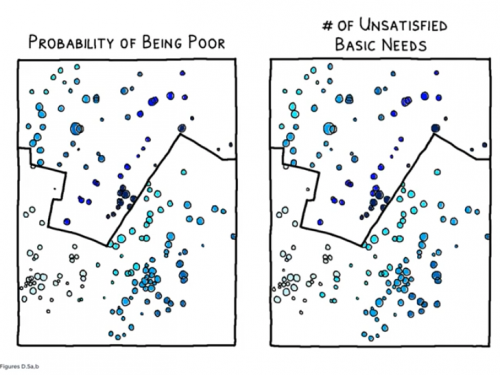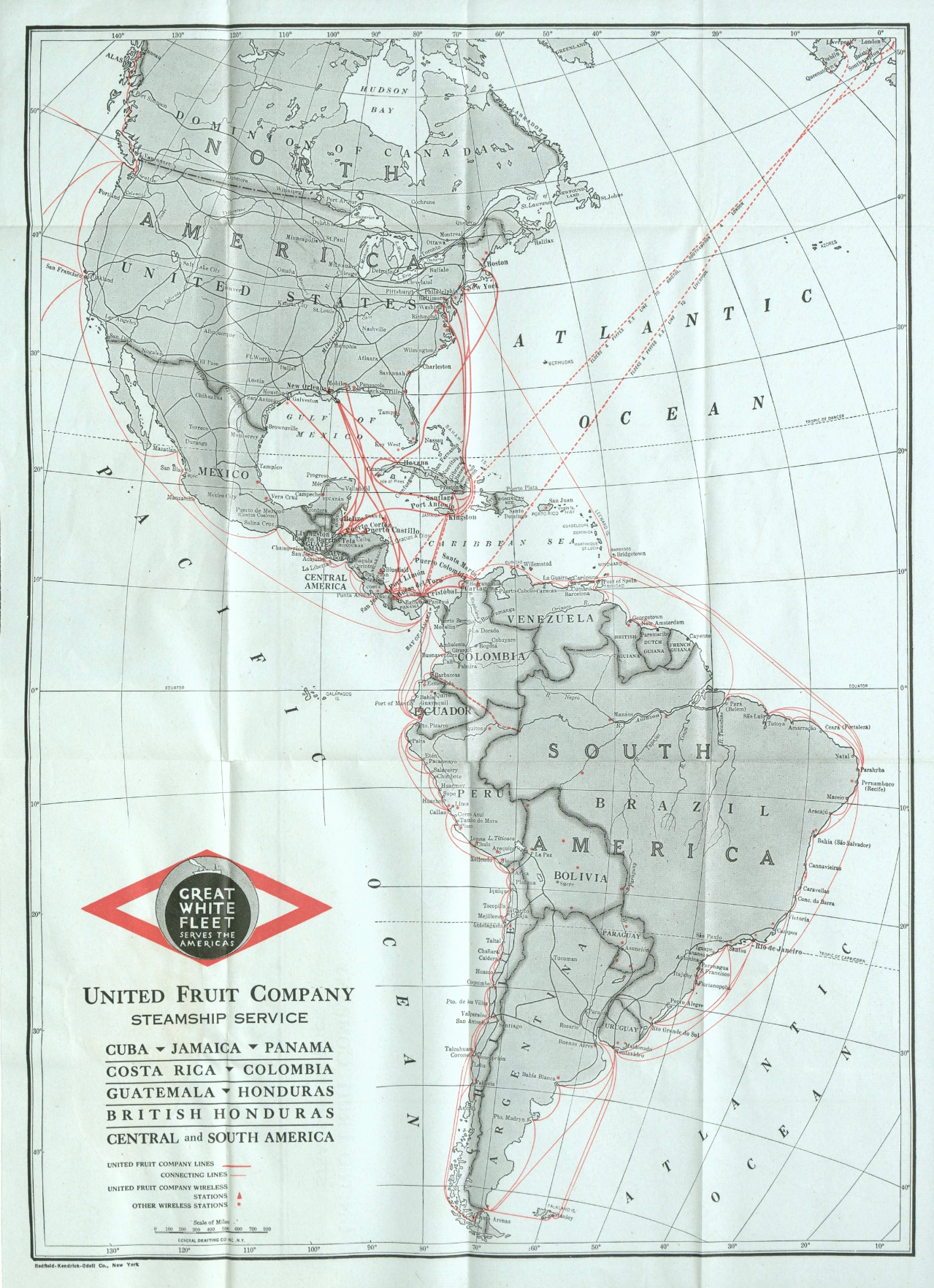The key finding of Van Patten’s paper is that worker mobility – meaning their ability to relocate for employment – supported company investment in the local economy and prevented some of the exploitation seen in other nations. Agricultural workers in Costa Rica often worked in short-term bursts, moving between coffee and banana plantations according to season, so the UFC had trouble attracting a long-term workforce. Workers were accustomed to traveling in and out of cities for work, leaving their families for only short periods of time. In order to establish the firm as a long-term employment opportunity, the UFC built schools, hospitals, and free housing for their workers.
A structural model used in the paper asked: what would have happened in Costa Rica if worker mobility would have been lower? “[In the] counterfactual, we find that if worker mobility would have been half the amount of what we estimate, the company would have had a negative and persistent effect on living standards,” Van Patten said. “Worker’s outside options and mobility are key.”
In Guatemala, for example, evidence suggests that worker mobility was lower. “There are letters from [United Fruit] Company officials to government officials disincentivizing the construction of roads. In these places, when we do a much more naive comparison between UFC and non UFC areas, we find that UFC areas are worse off today.” Worker mobility was a key incentive for the company to invest in the local economy, leading to the long-term positive effects seen in Costa Rican citizens.
Other Impacts of Foreign Firms in Costa Rica
In her new appointment at SOM and EGC, Van Patten is building on her study of the UFC to focus on other impacts of the presence of foreign firms in Costa Rica.
In an upcoming project in the same body of work, she uses agricultural census data to examine the long-term environmental effects of the presence of foreign agricultural firms in Costa Rica. Census data establishes the productivity of individual plots of land, owned by foreign and local firms, between 1964 and 2014. Using a similar methodology as in the UFC paper, she compares foreign and domestic operated plots side-by-side along vectors of productivity and pesticide or chemical use.

Van Patten explained her findings so far: “If the plot has been exploited or used by a foreign producer, it's true that the plot is more productive, [but] contemporaneously, it also uses more chemicals and fertilizers. Over time, the productivity of that plot decreases significantly.” She explained that exposure to foreign firms leads to negative long-run effects on productivity. “In particular, we see that heavy use of chemicals and fertilizers is associated with health problems in the population. So there are not only good aspects, but also bad ones of hosting these firms.” This finding reflects the complicated history of foreign firms in Costa Rica, yielding financial profits, employment, and investment but also long-term environmental costs.
Another upcoming paper uses unique voting data to gain insights into how Costa Ricans feel about the complex history of foreign firms in their country. Questions about citizens’ political views and voting behavior are hard researchers to answer empirically, as people often misrepresent their vote in surveys, giving the answer they think the surveyor wants to hear. However, a quirk in how Costa Rica conducts its elections gives Van Patten a better lens on voting behavior. In 2007, Costa Rica held a nationwide referendum that allowed voters to decide whether to uphold the DR-CAFTA (a NAFTA-like trade agreement between a group of several Central American states and the United States). While the US has been Costa Rica’s trading partner for many years, the vote was extremely close, passing by a margin of about 51%, with almost 60% of the country’s citizens participating in the referendum.
Costa Rica organized the election by having people vote in groups separated alphabetically by last name in public-school classrooms. This rendered voting data identifiable at the group level of 500 voters. Linking voting data with employer/employee data, Van Patten is able to ask: are people whose employers benefit from foreign trade more likely to vote?
“We find that that’s the case”, she said.
Additionally, Van Patten finds that the firm at which a person is employed is significantly more likely to impact participation in the vote than the type of labor they do or the industry they are in. Across skill levels and industries, people employed by firms that could benefit from foreign trade were more likely to vote in favor of the free trade agreement.
At Yale and the EGC, Van Patten will continue to pursue a broad range of research topics pertaining to the presence of foreign firms in developing countries. She will pass on a sense of both inquisitivity and responsibility to her students at the School of Management. Development economics research, she said, “can be a very powerful tool. You feel like your work can make a difference in the well-being and life quality of people in the developing world.”
Clare Kemmerer is a second-year graduate student in the MAR program at the Yale Institute of Sacred Music, concentrating in the study of visual arts and material culture, and an EGC Communications Intern. Photos by Vestal McIntyre for EGC.



